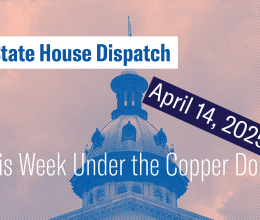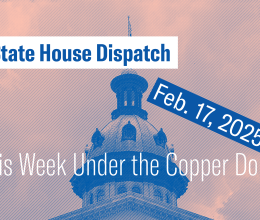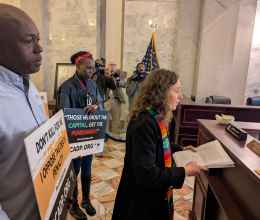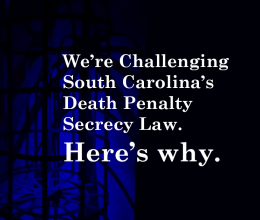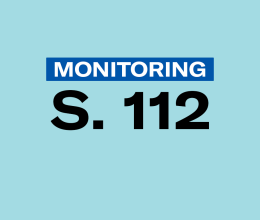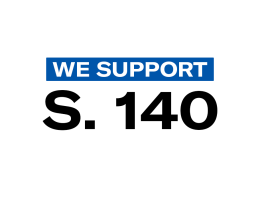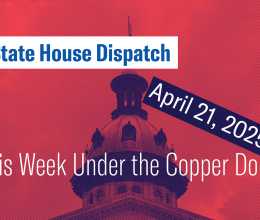
South Carolina’s jails and prisons alike have too often become our society’s solutions for people struggling with homelessness and mental health or substance use disorders. Our jail and prison logs are a daily reminder that our criminal justice system is a racist system that stops, arrests, convicts, and incarcerates Black people at staggering rates compared to white people.
With COVID-19, our failings as a society leave each of the nearly 30,000 people incarcerated in South Carolina’s prisons and jails facing a potential death sentence. That’s because incarcerated people are highly vulnerable to contracting and dying from COVID-19. They are housed in close quarters and are often in poor health. It is impossible for them to follow the social distancing guidelines.
For weeks, public health experts have been urging policymakers to do everything in their power to substantially reduce prison and jail populations to safeguard the lives of those who work and live there. The findings outlined in a new report released today by the ACLU amplify the need to reduce South Carolina’s jail populations immediately.
The report focuses on a new epidemiological model that shows COVID-19 could claim the lives of approximately 100,000 more people nationwide than current projections stipulate if jail populations are not dramatically and immediately reduced. These projections hold even if communities across the United States continue practicing social distancing and following public health guidance.
South Carolina’s unfortunate embrace of mass incarceration makes this problem even more dire. We’re talking about approximately 10,000 people in South Carolina’s jails alone.
Here are three things that our judges, solicitors, law enforcement, and local political leaders can do immediately to substantially reduce South Carolina’s jail population.
First, review all people currently held pretrial and immediately release on a personal recognizance bond all but the very few people where pretrial detention is absolutely necessary to ensure the person’s return to court or public safety. Approximately 75 percent of the over 10,000 people in South Carolina’s jails are incarcerated only because they are too poor to afford their bond. These people have not even been convicted of a crime.
Second, end the war on marijuana. As we reported on Monday, South Carolina has the second highest rate of marijuana possession arrests in the country. Every 15 minutes somebody is arrested for possessing marijuana in South Carolina - a substance that is legal or decriminalized for personal use in 26 states and the District of Columbia. As we work toward the legalization of marijuana statewide, our local leaders, from solicitors, to city and county leaders, to police chiefs and sheriffs, can immediately stop enforcing South Carolina’s marijuana possession laws. That’s a reduction of around 34,000 arrests each year.
Third, prohibit the use of arrests unless necessary to prevent imminent and serious bodily harm to another person and all non-incarceration alternatives have been exhausted. This would not only reduce unnecessary incarceration, but also strengthen trust in law enforcement - a key component to advancing public safety. As the Vera Institute of Justice noted, in “communities where distrust in police is high, people are less likely to report a crime or offer witness testimony, which impedes effective policing.”
For weeks we have asked our South Carolina’s political leaders to listen to the experts and take immediate steps to reduce our incarcerated populations. Our political leaders are running out of time, as we saw yesterday moments after we, along with our pro bono partners at Arnold and Porter, filed a lawsuit seeking the release of people at heightened risk of contracting and dying from COVID-19 in South Carolina’s prison system. Shortly after we filed the lawsuit, the South Carolina Department of Corrections disclosed that a second incarcerated person tested positive for COVID-19 at Kirkland Correctional Institution, leading to a two-week lockdown at the facility. Because Kirkland is the facility where all newly sentenced people come before being sent to another prison, the Department of Corrections has announced that it will not take newly sentenced people for two weeks, leaving additional people warehoused in South Carolina’s jails until Kirkland opens again.
As the new ACLU model found, aggressive action and policy change could save as many as 23,000 people in jail and 76,000 in the broader community if we stop arrests for anything but the five percent of crimes defined as most serious by the FBI — including murder, rape, and aggravated assault — and double the rate of release for those already detained.
Incarceration should not become a death sentence. The ACLU model shows that a larger catastrophe can be prevented if governors and all system stakeholders drastically reduce their incarcerated populations.
We cannot do this alone. Your voice can make a difference. Please click this link to learn how you can take action!

